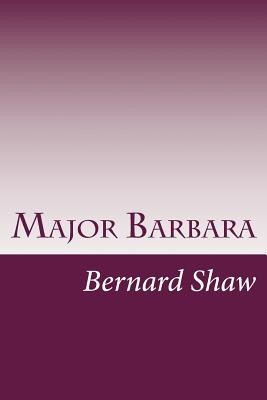
- We will send in 10–14 business days.
- Author: Bernard Shaw
- Publisher: CreateSpace Independent Publishing Platform
- Year: 2014
- Pages: 60
- ISBN-10: 1499145497
- ISBN-13: 9781499145496
- Format: 15.2 x 22.9 x 0.3 cm, minkšti viršeliai
- Language: English
- SAVE -10% with code: EXTRA
Reviews
Description
Gilbert Keith Chesterton was born in London, England on the 29th of May, 1874. Though he considered himself a mere "rollicking journalist," he was actually a prolific and gifted writer in virtually every area of literature. A man of strong opinions and enormously talented at defending them, his exuberant personality nevertheless allowed him to maintain warm friendships with people-such as George Bernard Shaw and H. G. Wells-with whom he vehemently disagreed. Chesterton had no difficulty standing up for what he believed. He was one of the few journalists to oppose the Boer War. His 1922 "Eugenics and Other Evils" attacked what was at that time the most progressive of all ideas, the idea that the human race could and should breed a superior version of itself. In the Nazi experience, history demonstrated the wisdom of his once "reactionary" views. His poetry runs the gamut from the comic 1908 "On Running After One's Hat" to dark and serious ballads. During the dark days of 1940, when Britain stood virtually alone against the armed might of Nazi Germany, these lines from his 1911 Ballad of the White Horse were often quoted: I tell you naught for your comfort, Yea, naught for your desire, Save that the sky grows darker yet And the sea rises higher. Though not written for a scholarly audience, his biographies of authors and historical figures like Charles Dickens and St. Francis of Assisi often contain brilliant insights into their subjects. His Father Brown mystery stories, written between 1911 and 1936, are still being read and adapted for television.
- Author: Bernard Shaw
- Publisher: CreateSpace Independent Publishing Platform
- Year: 2014
- Pages: 60
- ISBN-10: 1499145497
- ISBN-13: 9781499145496
- Format: 15.2 x 22.9 x 0.3 cm, minkšti viršeliai
- Language: English English
Gilbert Keith Chesterton was born in London, England on the 29th of May, 1874. Though he considered himself a mere "rollicking journalist," he was actually a prolific and gifted writer in virtually every area of literature. A man of strong opinions and enormously talented at defending them, his exuberant personality nevertheless allowed him to maintain warm friendships with people-such as George Bernard Shaw and H. G. Wells-with whom he vehemently disagreed. Chesterton had no difficulty standing up for what he believed. He was one of the few journalists to oppose the Boer War. His 1922 "Eugenics and Other Evils" attacked what was at that time the most progressive of all ideas, the idea that the human race could and should breed a superior version of itself. In the Nazi experience, history demonstrated the wisdom of his once "reactionary" views. His poetry runs the gamut from the comic 1908 "On Running After One's Hat" to dark and serious ballads. During the dark days of 1940, when Britain stood virtually alone against the armed might of Nazi Germany, these lines from his 1911 Ballad of the White Horse were often quoted: I tell you naught for your comfort, Yea, naught for your desire, Save that the sky grows darker yet And the sea rises higher. Though not written for a scholarly audience, his biographies of authors and historical figures like Charles Dickens and St. Francis of Assisi often contain brilliant insights into their subjects. His Father Brown mystery stories, written between 1911 and 1936, are still being read and adapted for television.


Reviews